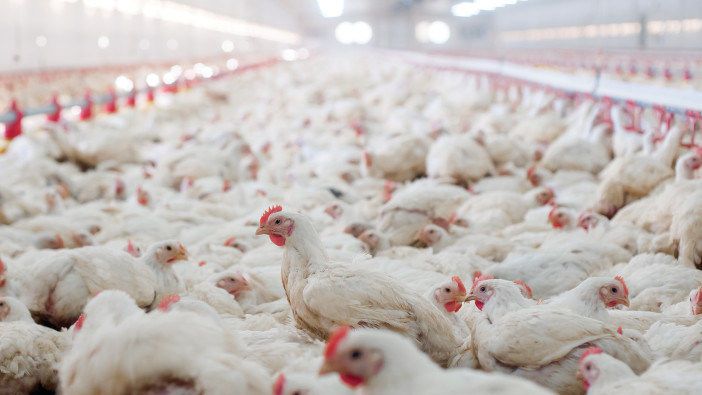A charity has been granted permission by the High Court to challenge Shropshire Council’s approval of a large-scale poultry production unit in the River Severn catchment.
The legal action is part of a wider campaign by River Action to use the law to prevent river pollution. The judicial review aims to halt the further spread of intensive poultry production both in the county and the wider catchment of the River Severn.
The action is being taken by Dr Alison Caffyn, who lives in Shropshire and is a member of River Action’s advisory board. Dr Caffyn is represented by the environment team at law firm Leigh Day.
In May, Shropshire Council approved an application by LJ Cooke & Son for a poultry production unit at Felton Butler, north-west of Shrewsbury.
The unit would house 230,000 birds, with Dr Caffyn arguing it is imperative to prevent “giant clusters of polluting poultry units” from being built.
An application was made for a judicial review into the council’s decision, arguing the council failed to take a number of issues into account, including the effects of spreading manure and the emissions from burning biomass.
The High Court has now granted permission on the following grounds:
A failure to assess the effects of spreading manure and the emissions from burning biomass, which as indirect effects of the development, needed to be assessed
A failure to impose a lawful planning condition on manure processing that would mean that the development would not cause groundwater pollution
River Action plans to appeal the High Court’s decision not to allow the judicial review action also to be argued on the following grounds:
A failure to carry out a lawful appropriate assessment as required by the Habitats Regulations to ensure that the development would not adversely affect the integrity of a designated protected site
A breach of regulation 9(3) of the Habitats Regulations, which requires the council to take steps to avoid the deterioration of habitats at protected sites
Dr Caffyn and River Action say they consider Ground 3 the most important issue. It specifically concerns the potential for the development to adversely impact the integrity of designated protected sites, including Hencott Pool and Fenemere. The failure to properly assess these risks could lead to further deterioration of ecologically sensitive areas.
Dr Caffyn said: “The chicken population has grown so much that there are now nearly 65 chickens for every person in Shropshire. And it appears that the Council has not been properly assessing the impacts of all that extra manure and ammonia emissions on our rivers and special habitats. We need them to stop allowing ever more levels of unsustainable industrial agriculture in Shropshire.”


